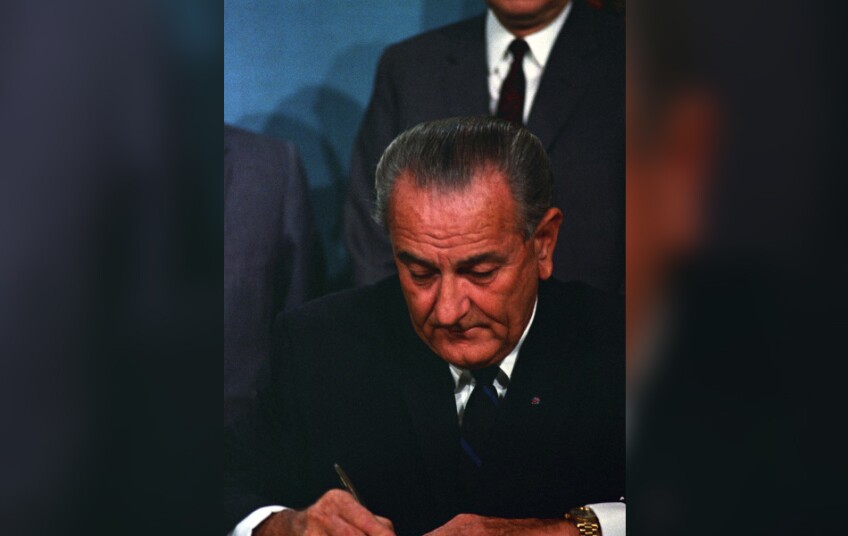November 1967 - President Johnson Signs Public Broadcasting Act

On November 7, 1967, President Lyndon Johnson signed the Public Broadcasting Act into law, creating and assisting the development of publicly-funded, non-commercial educational television and radio stations and programming nationwide for the benefit of the American people.
The Public Broadcasting Act created the nonprofit Corporation for Public Broadcasting (CPB), and led the way to eventually create the Public Broadcasting Service (PBS) and National Public Radio (NPR) networks.
Prior to the passage of the act, educational programming on television and radio was largely funded by the Ford Foundation. Many stations were run by school districts, universities, or other educational institutions. In 1953, the Federal Communications Commission had reserved over 250 frequencies for educational television channels, but by 1960, only around 40 of them were in actual operation. Many of those stations, such as the now-defunct USC-run educational station that originally operated on channel 28, failed through lack of funding for programming and technical resources. Because of the Public Television Act, the number increased to 175 by 1969.
The National Educational Television (NET) network, itself funded primarily by the Ford Foundation, could only be funded at the whim of the foundation. Funding of a particular program could be jeopardized if the funder, say, did not approve of certain kinds of programs that were aired. The creation of the CPB eliminated that conflict of interest.
It also, for the first time, re-defined the realm of "Educational Television" into a broader, more comprehensive definition, encompassing all forms of non-commercial programming intended for the public benefit. Gone was the term "Educational Television," and in came "Public Television."
The Public Broadcasting Act helped to strengthen the resources of existing Educational Television stations like KCET, and create new ones, even including some of KCET's regional competitors. Among the first major KCET programs that were a direct result of the Public Broadcasting Act was the CPB-funded series, "The Advocates."


